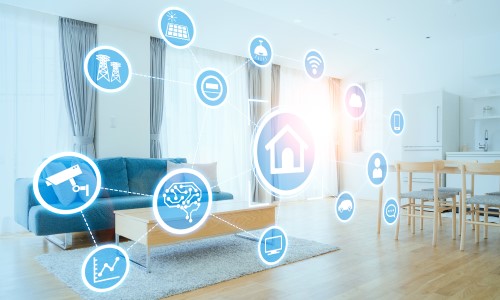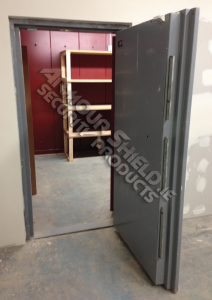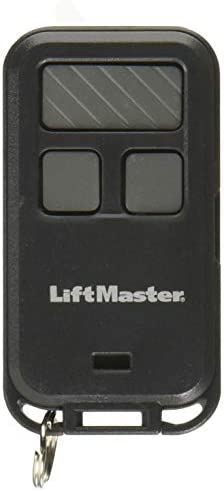
You'll want your computer protected from scammers and hackers, whether you use it every day for work or only to have fun. The best computer software will do this for you by detecting and removing viruses, malicious code, phishing attempts, and any other malicious program. These programs will also protect you from dangerous websites, block unwanted material, and manage your passwords.
Cheap Antivirus
You'll find that many antivirus companies offer discounts and introductory offers for new customers. Prices are also often lower when you buy multiple years than if you purchase a single year. Prices for these packages range between $20 and $50 per year. However, prices vary depending on which company you choose and the features that you require.
Best Antivirus Software
These antivirus suites come in many varieties, but Trend micro Maximum Security, AVG internet security, and Bitdefender are some of the more popular. These packages protect against a wide range of threats, including malware, spyware, and ransomware.
Also, they encrypt sensitive data, lock it with a password and delete them permanently. They are compatible with Windows, Macs, and Android devices.

Good antivirus software isn't cheap, but it will help keep your computer safe and secure. Its main benefit is that it detects new virus strains before they become widespread, which helps ensure your computer isn't infected.
It is important to keep your passwords up-to date and secure. It can also remove malicious files and update drivers.
Avira offers a high-quality antivirus program for a reasonable price. The sleek interface is easy to navigate but may need to be tweaked to fit your needs.
AV-Test rated the software "highly efficient" in their recent tests. It also includes extras such as a VPN to circumvent geo-restriction. It is resource intensive and sometimes doesn't work on older machines. But it's fast, lightweight, and efficient.
Kaspersky's antivirus software, Total Security (the latest version), has an excellent record of lab tests. It also offers other extras, including a webcam scanner, parental controls, a secure browser, and home-network-management software.

If you need a good antivirus, it's well worth paying a little extra for a standalone solution from a reputable provider. These will give you better coverage and a more robust interface, but they will cost more per year than the mainstream software.
Combining anti-phishing with antivirus is the best solution for antivirus and internet protection software. These systems detect malicious sites as soon as they appear and stop them from stealing personal data or exposing it. The systems also block ransomware attacks and protect against phishing.
The best anti-virus software will protect you computer and mobile devices by blocking a range of threats. These can be harmful to your privacy, steal sensitive data or even lock out your account. It will also protect your identity and passwords by analyzing your online activity.
FAQ
Which home security system is the most feature-rich?
Ring Video Doorbell Pro boasts the most features among all of the home security systems we evaluated. You can view who is at your doors, talk to them over your phone and record video. It comes with a cloud storage service that allows you to save all recordings.
Do I really want a home alarm?
If you own a home, you definitely need a home security system. The possibility of a burglar entering your house at any time is possible. They'll take anything they want, including expensive electronics and jewelry. They can even take everything if your doors are unlocked.
Home security systems can help protect your home by notifying you when something happens. This includes detecting motion, sending alerts to your mobile device, recording activity, and allowing you to view recorded footage.
A DIY camera is a great alternative to a full-blown home security system. These devices allow you to see who's at your front door, and will send you notifications when they enter. But they won't help you stop intruders from breaking into your home.
Which one is better: home security camera or home security system?
Home security systems are better than home security camera because they can detect movement and sounds even if nobody is in the room. However, home security cameras can be mounted on doors and windows easily and are less expensive than home systems.
How much does a good home security system cost?
A home security system is about $2,500. This may seem like a lot of money, but it is actually very cheap compared to the peace of mind you'll gain by having a safe and secure home.
Which home security system is easiest to install?
These systems are considered the most effective for home security and do not require any type of installation. These systems are also known as "plug & Play" and work like magic. You simply need to plug them in to the power outlet and then connect them via a wireless router to the internet. Once connected, everything will be available for you to manage from anywhere around the world.
What are the differences between home security systems?
You need to assess the level of threat in your community. You might consider installing an alarm system that sounds when someone enters your house. You may not need as much security if you live in rural areas with few burglaries.
Also, consider whether you are willing to pay extra for additional features. Some systems have cameras built in while others do not. Some systems let users remotely monitor their homes, while others require them to be physically present in order for you to see the footage.
Who is the best home security monitoring company?
ADT is the best home security company. They provide 24/7 monitoring at an affordable cost. Their customer support team is available around the clock, and they will respond to any issues within minutes.
ADT also offers an app that works on both Android and iOS platforms. So you can monitor your home at any time, from any location.
Statistics
- (In my experience, the discount on my home insurance covered about 25 percent of the subscription of an average plan, but your mileage may vary depending on your location and the size of your home.) (theverge.com)
- Most home security companies will charge you around 75% of the remaining term of your contract if you cancel early—and some require 100%.Related questionsWhat type of contract length can I expect from security providers?Home security system cancellation (safewise.com)
- Related questionsHome security systems that are 100% DIY (safewise.com)
- Unlike other online safety services that charge up to 100 percent of your monthly fee, Cove charges no upfront fees and has no hidden costs.
External Links
How To
How to Install A Home Security System
A home security alarm is a device that monitors the property and alerts you in case of any suspicious activity. It could be a motion detector, doorbell camera or smoke detector. A home security system usually consists of one or more sensors (e.g., motion detectors), which send signals when they detect movement or sound. The signals are then sent by the sensors to a control center where they are recorded and monitored. If there's a problem such as someone breaking into your house or other suspicious activity, the control panel sends an alert via your phone, tablet computer, voice assistant, or computer. You will immediately be notified and can take appropriate action.
Selecting the right sensors for your home is an important step in installing a home security alarm system. There are two main types, passive and active. Passive sensors don't require batteries; they just pick up sounds and vibrations from their surroundings. They can be doorbells or sirens as well as buzzers. Active sensors transmit data via electricity. Examples of such sensors include cameras and motion sensor.
There are many brands of sensors today. Each brand has their own pros and cons. Some sensors are waterproof, others are not. Some of them have built in speakers so that you can still hear them from outside. Others work only inside. Some of these are very basic, while others have advanced features such night vision.
After you have decided on the best sensors for your property's needs, you will need to choose a manufacturer. This will ensure that all your sensors work together. You should find plenty of choices at your local hardware shop.
Once you have selected a brand of sensor, you need to decide the number you wish to buy. Depending on whether they live with family members or alone, most people purchase one or two sensors. You might want to buy more sensors if you intend on adding them later.
Next, determine where you want your sensors to be placed. Are you looking for them to be near doors or windows? Or do you prefer having them hidden away? Before placing them on your property, get permission. Make sure that they won't cause interference with any other electrical outlets.
Now that you know the exact location of your sensors you will need a connection to your control board. Depending on your setup you might need to buy a power adapter and/or battery pack. Once everything is setup, you will be able to monitor your property.